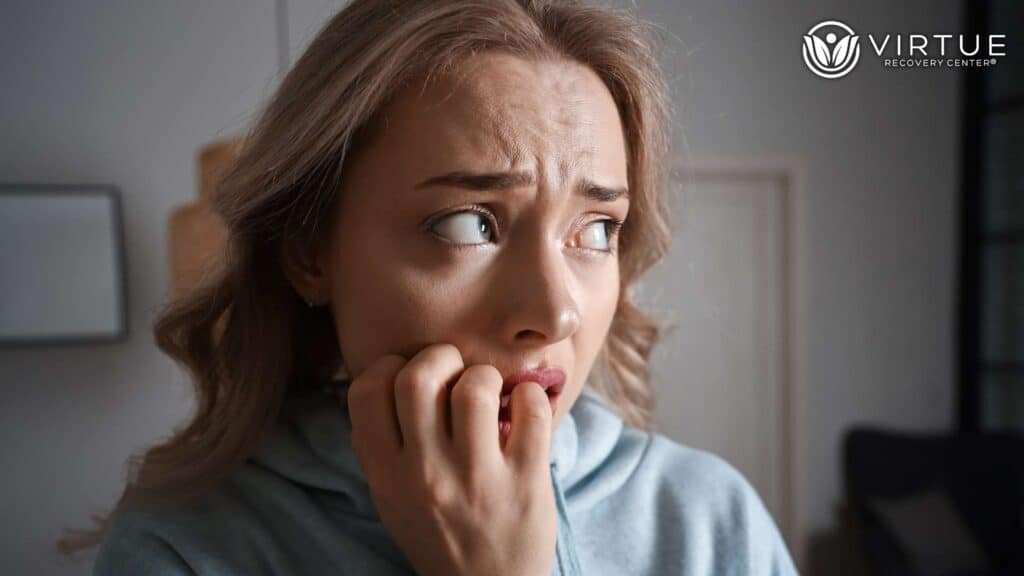Key Takeaways
- Substance use can significantly increase the risk of developing psychosis.
- Drugs like cannabis, methamphetamine, and cocaine are strongly linked to psychotic symptoms.
- Comprehensive treatment, including therapy and medication, can address substance-induced psychosis.
Introduction
Psychosis is a severe mental health condition where individuals lose touch with reality. It often manifests through hallucinations, delusions, and disorganized thoughts. Substance use is a significant factor that can trigger or worsen these symptoms. Understanding how substance use relates to psychosis is essential for those affected and their families. With timely intervention and proper care, many can recover and regain stability.Understanding Psychosis and Its Connection to Substance Use
Psychosis involves a disconnection from reality, characterized by hallucinations, delusions, and erratic behavior. While often associated with conditions like schizophrenia, psychosis can also arise from substance use. Certain drugs disrupt brain function, altering neurotransmitters like dopamine, which regulate mood and perception. Cannabis, particularly strains high in THC, can provoke psychosis in susceptible individuals. Methamphetamine use often leads to paranoia, aggressive behavior, and vivid hallucinations. Alcohol withdrawal may cause delirium tremens, a severe psychotic state involving confusion and tremors. The long-term use of these substances can lead to persistent changes in brain chemistry and function, making individuals more vulnerable to mental health disorders. Moreover, the phenomenon known as the ‘kindling effect in addiction‘ can result in increasingly severe reactions with each instance of substance use or withdrawal, further exacerbating the risk of psychosis. This cycle creates a challenging landscape for recovery, as individuals may find it increasingly difficult to regain their mental stability and wellbeing. Substance-induced psychosis can manifest during active drug use or withdrawal, lasting temporarily or becoming chronic if left untreated.How Does Substance Use Trigger Psychosis?
Substance use affects brain chemistry, particularly neurotransmitters that influence mood, perception, and behavior. The excessive stimulation of dopamine pathways is a common factor leading to psychotic episodes. Additionally, risk factors play a significant role.- Genetics can predispose individuals to psychosis, especially if there is a family history of mental illness.
- Pre-existing mental health issues like anxiety or depression increase vulnerability when combined with substance use.
- Chronic and heavy use of high-potency drugs heightens the risk of psychosis.
Recognizing Symptoms of Substance-Induced Psychosis
Symptoms of psychosis can be alarming and disruptive. They often include distorted perceptions and disorganized thinking.- Hallucinations, where individuals hear or see things that aren’t real, are common.
- Delusions, or holding false beliefs despite evidence to the contrary, may occur.
- Paranoia can lead to mistrust of others and irrational fears.
- A lack of focus or inability to form coherent thoughts is also frequently observed.
Long-Term Risks of Psychosis and Substance Use
Substance-induced psychosis poses severe long-term consequences if untreated. Repeated psychotic episodes can lead to chronic mental health conditions such as schizoaffective disorder. Beyond mental health, psychosis impacts every aspect of life. It often leads to strained relationships, job loss, and financial instability. Some individuals may face homelessness or legal issues due to erratic behavior. Without treatment, psychosis can worsen over time, increasing the difficulty of achieving recovery. Seeking help early is vital to mitigate these risks.Treatment Options for Substance-Induced Psychosis
Effective treatment addresses both the mental health and addiction aspects. A comprehensive approach ensures the best outcomes. Detoxification is often the first step, allowing individuals to withdraw safely from substances under medical supervision. Managing withdrawal symptoms reduces the likelihood of further psychotic episodes. Therapy is another cornerstone of treatment. Cognitive Behavioral Therapy (CBT) helps patients identify and challenge harmful thought patterns. Group therapy provides peer support, fostering a sense of community and shared understanding. Medication can play a vital role as well. Antipsychotics help manage hallucinations and delusions, while mood stabilizers address co-occurring mental health conditions. Recovery requires commitment and professional support. By combining medical care, therapy, and a strong support system, individuals can regain control over their lives.How Does Mixing Drugs and Alcohol Increase the Risk of Psychosis in Individuals with Substance Use Disorders?
Individuals with substance use disorders face heightened risks from the dangers of mixing drugs and alcohol. This combination can disrupt brain chemistry, leading to severe psychological effects. The risk of experiencing psychosis increases due to compounded impairments in judgment and perception, exacerbating underlying mental health issues. Awareness is crucial for safety.







